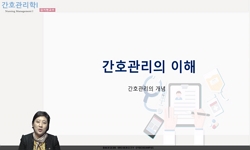본 연구는 최근 조직행위론 분야에서 큰 주목을 받고 있는 발언행동(voice behavior)의 개념 및 유형에 대해 살펴보고, 이러한 행동이 개인 수준(individual-level)뿐만 아니라 집단 수준(group-level)의 ...
http://chineseinput.net/에서 pinyin(병음)방식으로 중국어를 변환할 수 있습니다.
변환된 중국어를 복사하여 사용하시면 됩니다.
- 中文 을 입력하시려면 zhongwen을 입력하시고 space를누르시면됩니다.
- 北京 을 입력하시려면 beijing을 입력하시고 space를 누르시면 됩니다.
집단특성과 집단 수준 발언행동 : 개념적 연구 = Group characteristics and group-level voice behavior : A conceptual investigation
한글로보기https://www.riss.kr/link?id=A109157403
- 저자
- 발행기관
- 학술지명
- 권호사항
-
발행연도
2017
-
작성언어
-
- 주제어
-
KDC
300
-
자료형태
학술저널
-
수록면
84-102(19쪽)
- 제공처
-
0
상세조회 -
0
다운로드
부가정보
국문 초록 (Abstract)
본 연구는 최근 조직행위론 분야에서 큰 주목을 받고 있는 발언행동(voice behavior)의 개념 및 유형에 대해 살펴보고, 이러한 행동이 개인 수준(individual-level)뿐만 아니라 집단 수준(group-level)의 공유된 집단 특성(shared group property)으로 개념화될 수 있음을 대리학습(vicarious learning)과 집단규범(group norm)의 관점에서 설명한다. 특히 본 연구는 집단규범의 관점에 초점을 맞추어, 집단 발언풍토(group voice climate) 및 집단 수준 발언행동(group-level voice)의 형성에 영향을 미칠 수 있는 집단 특성들(group characteristics)에 대해 살펴본다. 구체적으로 집단의 특성을 구조적 특성(structural characteristic), 리더십 특성(leadership characteristic), 구성 특성(compositional characteristic), 사회-문화적 특성(socio-cultural characteristic) 측면으로 구분하여, 과업/결과 상호의존성(task/outcome interdependence), 지시적/코칭 리더십(directive/coaching leadership), 다양성(diversity), 권력차이(power difference)를 각각 중요한 집단특성들로 제시하고 이들의 영향에 대해 살펴본다. 본 논문은 집단 상황 하에서 발언행동이 어떻게 발생하게 되는지를 이해하는 데 도움을 줄 것이다.
다국어 초록 (Multilingual Abstract)
Recently, employee voice has received widespread attention in the field of organizational behavior. Although voice behavior tends to be conceptualized as an individual-level construct in previous studies, this paper argues that it may emerge as a grou...
Recently, employee voice has received widespread attention in the field of organizational behavior. Although voice behavior tends to be conceptualized as an individual-level construct in previous studies, this paper argues that it may emerge as a group-level construct or a shared group property over group members via two underlying mechanisms, vicarious learning and group norm. Particularly focusing on the role of group norm, this paper proposes a conceptual model that defines group characteristics that may determine voice climate and, in turn, group-level voice behavior. Specifically, the group characteristics include the structural characteristic (task/outcome interdependence), the leadership characteristic (directive/coaching leadership), the compositional characteristic (diversity), and the socio-cultural characteristic (power difference). This paper will contribute to our understanding of employee voice in group contexts.
동일학술지(권/호) 다른 논문
-
팔로워십 특성과 리더십 행동이 비행교육 효과성에 미치는 영향에 관한 연구
- 공군사관학교
- 구관모 ( Koo Kwan Mo )
- 2017
-
- 공군사관학교
- 김국현 ( Kim Cook Hyun )
- 2017
-
한국 영어학습자들의 to 부정사 사용에 대한 코퍼스 분석
- 공군사관학교
- 나양온 ( Rah Yang On )
- 2017
-
- 공군사관학교
- 김성수 ( Kim Sung Soo )
- 2017




 KISS
KISS




